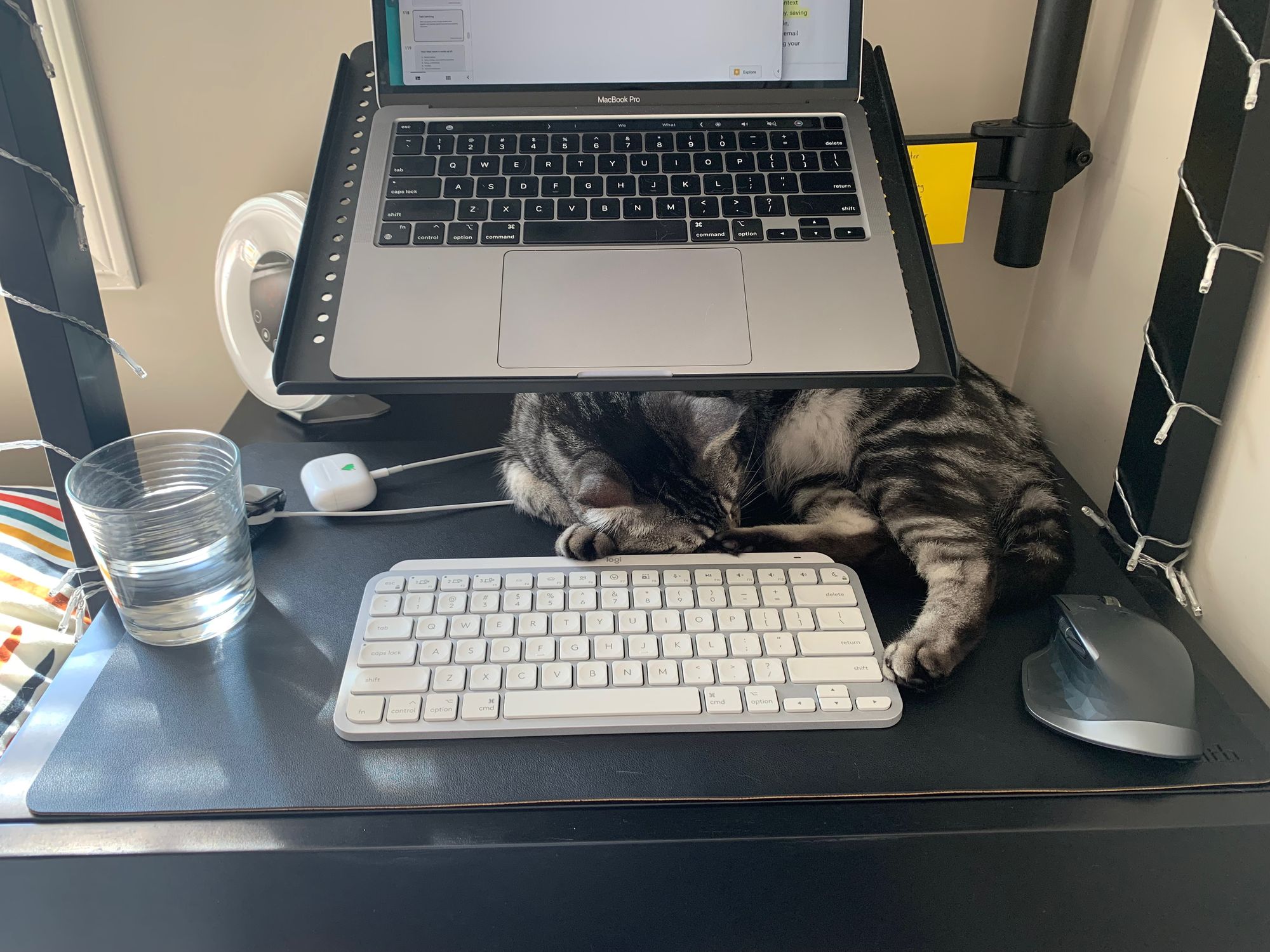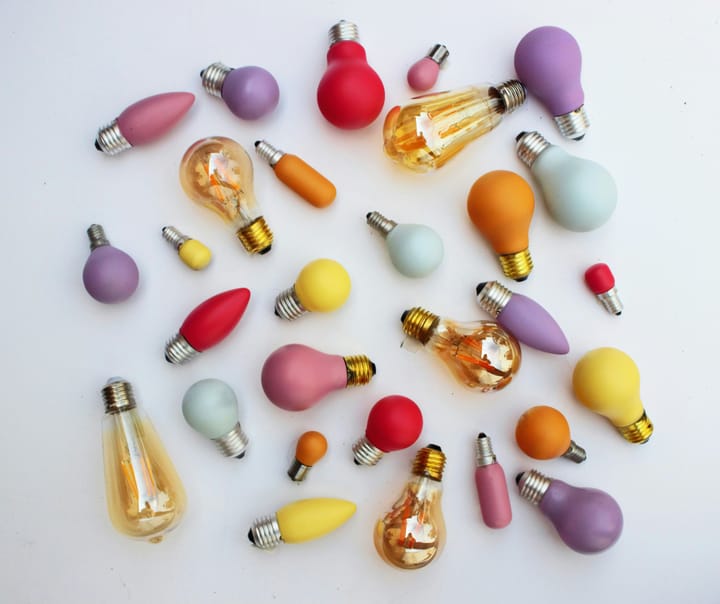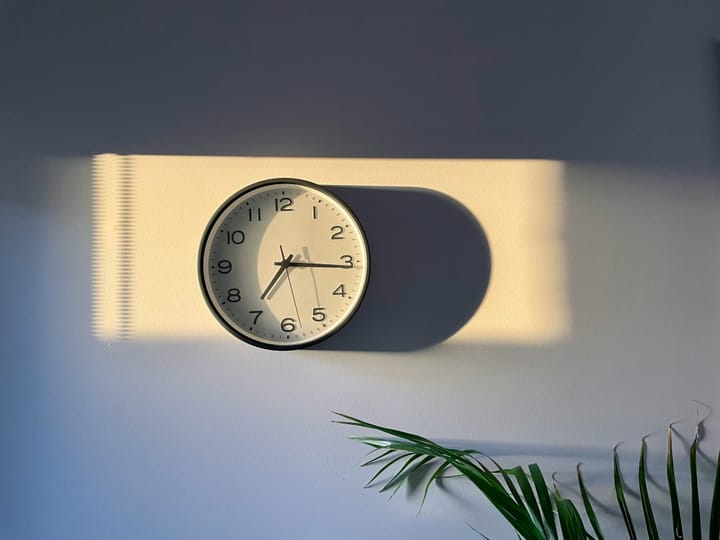How to Manage Time Anxiety and Narrow the Cycles of Life
Learn to think about your time in terms of output, not outcomes, and make space in your life for the things that bring you joy.

Somehow it's the last day of August.😳
As the weather starts to cool, kids go back to school, and the trees change, the pace of life is already ramping up. September, aka mini-January, is upon us. Most people seem to shake off the summer slow down and exchange it for a crescendo of activity until Christmas when they take a brief respite, only to pick it up again in the new year.
While I like the energy that comes with this shift, there is sometimes an overcorrection for the pace people “allow” themselves in the summer. The cycle away from summer play to work and professional endeavours starts and takes a long time to return. Too long.
I recently had a session with a client who said her summer had been a season of play and doing the things that filled her heart… but now she had to buckle down and ramp things up. This conversation gave me pause because it begged the questions:
- Why should she not be able to do the things that filled her heart year-round?
- Why was summer the only time when she is “allowed” to slow down and enjoy a less frantic pace?
The summer slowdown is not for everyone depending on your role or business, but generally, the pace of life relaxes as people enjoy the sunshine and take vacations. It’s acceptable to take this time away, but there is an expectation that it is a temporary reprieve from “real life”.
But why is that?
Time anxiety and joyless urgency
Don’t get me wrong. I’m not saying that we should all sit back, poolside with a margarita and the latest N.K. Jemison paperback for weeks at a time (though tempting🤔). Feeling energized and motivated to work is great! What I’m suggesting is:
- What if that crescendo of activity post the ease of summer was smaller, followed by some more immediate downtime, and then another small crescendo, and so on?
- What if the cycles were shorter and less drastic so there wasn’t the need for the Christmas collapse but rather a more measured approach?
Intriguing, right?
In a term coined by author Marilynne Robinson, we get caught up in this joyless urgency to do more, be more, and produce more. We’re told we need to hustle both professionally and personally. We even compete with each other for who is busier or hustling harder.
We push ourselves to exist at a breakneck pace and then feel guilty when we take downtime.
Even when we do take time off or breaks, there is STILL a feeling like we need to be “productive”. We do things like:
- Stock up on business books to read on the beach.
- Rush to see every monument/church/museum/tourist attraction in a new city.
- Reorganize and clean out the basement/garage/entire house or do a minor home renovation on a staycation.
None of these activities are intrinsically bad, I have done them all myself! They are completely reasonable activities, but the motivation behind them is worth examining.
It comes down to time anxiety: the fear of wasting your time.
I wrote about how to redefine what it means to waste time. The argument is that the things we do that are often considered “wasted time” are actually productive because downtime is a necessary part of being productive. Moreover, truly wasted time is time spent not enjoying the things and people you love.
Saying that downtime is productive time is easy, though. Believing it and internalizing it is much harder. Even for those of you who give yourself permission to completely disconnect from work on vacation or the weekend, there is often a feeling of guilt that maybe you should be trying to “catch up” or “get ahead of things”.
We have internalized the feeling of joyless urgency as a necessary part of our existence. But what if we were able to let it go?

How to manage time anxiety
Anne-Laure Le Cunff of Ness Labs wrote that time anxiety happens when “your well-being is determined to a large extent by the importance of the value you feel you are creating with your life.” She went on to say,
“This over-optimization may prevent us from creating the most value with our lives. We limit ourselves by always calculating the best potential outcome through our personal perception of the possible. Beating time anxiety means shifting our focus from outcomes to output so we can spend our energy on things we can actually control.”
So what does it mean to shift how you think about your time from outcomes to output?
It’s similar to the adage: “It’s the journey, not the destination”.
It’s not focussing on getting to the summit but rather enjoying the fresh air in your lungs, the burning in your quads, and looking back at how far you have come.
Le Cunff shared 3 strategies to help manage time anxiety:
1. Define what it means to spend time well
What does “time well spent” mean to you, in your circumstances, in your life? It may not be the same as other people and may also change over time with the seasons of your life (and that’s ok!). The most important thing is to decide for yourself and not let external opinions dictate the things that are “worth your time” or the things that are a “waste of time”.
Time will pass regardless of what you do. When you think about how you spend it, think less about the potential outcome, and more about how you will feel while you do it.
What truly makes you happy or brings you joy?
For example, I love to play video games with my husband. Video games are considered by many a complete waste of time. But I don’t play video games to produce something specific--I play them because they are fun. My husband and I laugh, problem solve and share in something and that brings us joy.
I also love to write. Every time I sit down to write I do not produce a masterpiece. In fact, I often write nothing of value at all. But still, I enjoy writing. I like the texture of the keyboard beneath my fingers when I type. I like to capture the feeling of something in words. I like the moment when an idea comes together in a way I didn’t expect. Sometimes I produce something great, sometimes I delete the whole mess.
And still, I write—output, not outcome.
2. Make space in your life to do the things you define as “time well spent”
Le Cunff describes “designing a space dedicated to your “time well spent” activities” versus “making time for the things you have defined as time well spent”. She says to “think of where you will incorporate these moments into your life”.
This is an interesting reframe of “making time”. We can’t fabricate time out of thin air. But we can be intentional about creating the circumstances of when and where we do the things that bring us joy.
For example, my husband and I play those previously mentioned video games on Saturday mornings either at our computers in our shared office or on our couch in our living room, with kitties always in tow. I also set up a small writing desk in our bedroom for when I write each morning. These are a when and where for an activity that, for me, is time well spent.
When and where will you do the things that are time well spent for you? Where are the spaces in your life where you can spend your time well? Some examples:
- On the daily walk with your dog in your neighbourhood
- After the kids are in bed
- While you drink your morning coffee at your kitchen table
- After school with your kids in the living room

3. Cut out the things that truly waste time or distract you
When you scroll social media, fall down a rabbit hole of the internet, or aimlessly browse Netflix (notice I didn’t say channel surf since that isn’t really a thing anymore 😅), these are likely distractions. Le Cunff suggests you, “do a quick audit of your content consumption patterns and try to cut out the amount of time you spend in an input rather than output mode.”
All social media can be cesspools. Consuming shows or movies can be numbing activities. I even feel overwhelmed by having too many newsletters and articles to read. But there is a balance. As long as you are not passively scrolling or endlessly letting Netflix start the next episode for the 6th time, these things can have value, in moderation and with purpose.
The question to ask yourself is: “does this fill my bucket or make me feel zoned out and numb?”
Narrow the cycles of life and fill your heart year-round
In my session with my client who felt the pressure to “buckle down and ramp up” as the summer came to a close, I asked:
- What if instead of pushing hard at the expense of the things you said fill your heart, you focussed on keeping things steady and measured?
- What if you worked hard, harder than in the summer, but also made space for what you define as time well spent?
- Where do the things that fill your heart, the things you define as time well spent, fit into your life?
Life goes in cycles. The pendulum of your attention and focus will swing between different facets, and stick longer in some areas than others at different times.
The mental shift I encourage is not that you don’t work hard or have cycles that focus on work. There is nothing wrong with focussing on work! Working hard is great! It’s instead for you to intentionally manage these cycles to be less drastic. Instead of the wild crescendo, you push through to then collapse on a brief vacation, go through the upward motion of hard work followed by the things that fill your heart and a little downtime, and then the upward motion, and repeat.
What if you filled your heart year-round, instead of deferring those things to a later time when you are “allowed”?
Busyness and burnout, are things we do to ourselves, and they’re outcomes of time anxiety. Calm time anxiety and the requisite push to ramp up by consciously deciding what it means to spend your time well. Think about the output, not the outcome. Then decide when and where you will include them in your life and do them. Not because they will produce something, but simply for the enjoyment of them.
Where will you make space in your day-to-day to do something, just for the joy of it?
Do you experience time anxiety? Book a chat with me to talk about how I can help you calm it and make space in your life for the people and things that are important to you.
Share
Ashley Janssen

Productivity consultant, writer, speaker, serial entrepreneur, chaos calmer, introvert, cat-lady. Lover of books, fitness, old fashioned’s, basketball, and video games.
Follow me on
Twitter
or
LinkedIn.
Hire me for
1 on 1 productivity consulting
or
speaking.
Related articles

My 3 Favourite Productivity Newsletters

When You Do Things Matters


Comments ()